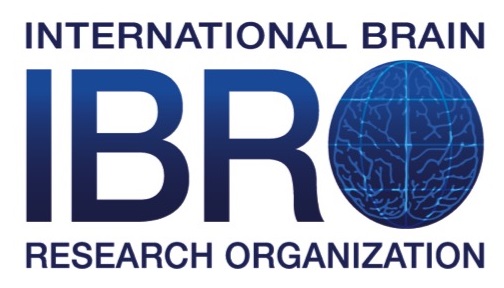From Neuroscience to Artificially Intelligent Systems (NAISys)
November 9 - 12, 2020 Virtual
Abstract Deadline: August 14, 2020
For information on NAISys 2022 click here
Organizers:
Raia Hadsell, DeepMind, United Kingdom
Blake Richards, Mila, Québec AI Institute, Canada
Anthony Zador, Cold Spring Harbor Laboratory
*********
The current COVID-19 situation is challenging and difficult for all of us - we hope this virtual conference will allow colleagues to share and discuss their latest research, while under travel and stay-at-home restrictions.
Because of the ongoing COVID-19/SARS-CoV-2 outbreak, CSHL and the organizers have now reached the difficult decision to restructure the meeting on From Neuroscience to Artificially Intelligent Systems into a virtual meeting scheduled November 9-12, 2020. NAISys will begin at 10 am (EDT) on Monday, November 9 and ending with an afternoon session on Thursday, November 12, 2020. Oral sessions will be confined to later morning and afternoon sessions EST to maximize access by participants from around the world.
*********
This meeting kicks off CSHL’s NeuroAI Scholars Program where AI scientists are imbedded in CSHL’s world-class neuroscience laboratories for an exciting two year exchange of interdisciplinary study. For more information please visit CSHL's NeuroAI Webpage.
Artificial intelligence (AI) and neural networks have long drawn on neuroscience for inspiration. However, in spite of tremendous recent advances in AI, natural intelligence is still far more adept at interacting with the real world in real-time, adapting to changes, and doing so under significant physical and energetic constraints. The goal of this meeting is to bring together researchers at the intersection of AI and neuroscience, and to identify insights from neuroscience that can help catalyze the development of next-generation artificial systems.
Abstracts are welcomed on all scientific topics related to how principles and insights from neuroscience can lead to better artificial intelligence. Topics of interest include but are not limited to network architectures, computing with spiking networks, learning algorithms, active perception, inductive bias, meta-learning, and online learning. Please note that abstracts should be ONE page (~2900 characters).
| Day | Time (EST) | Session # | Session Name |
| Monday |
10:00 am - 1:00 pm |
1 |
Neuro for AI |
| Monday |
2:00 pm - 5:00 pm |
2 |
Bio-inspired Learning and Architectures I |
| Tuesday |
10:00 am - 1:00 pm |
3 |
Bio-inspired Learning and Architectures II |
| Tuesday |
2:00 pm - 5:00 pm |
4 |
Learning Motion / Motor Cortex Models |
| Wednesday |
10:00 am- 1:00 pm |
5 |
Keynote Speaker: Yoshua Bengio
Causality and Compositionality |
| Wednesday |
2:00 pm - 5:00 pm |
6 |
Continual Learning / Plasticity |
| Thursday |
10:00 am- 1:00 pm |
7 |
Representation Learning |
| Thursday |
2:00 pm - 5:15 pm |
6 |
Vision and Neuromorphic Hardware
Keynote Speaker: Yann LeCun |
| Throughout Meeting |
|
|
Virtual Poster Session |
| Virtual Icebreaker |
Monday, 5:30 pm |
|
|
Keynote speakers:
Yoshua Bengio, Université de Montréal
Yann Lecun, NYU/Facebook
Invited Speakers:
Kwabena Boahen, Stanford University
Dmitri Chklovskii, Simons Foundation
Anne Churchland, Cold Spring Harbor Laboratory
Claudia Clopath, Imperial College London, UK
Jim DiCarlo, MIT
Chelsea Finn, Stanford University
Surya Ganguli, Stanford University
Jeff Hawkins, Numenta
Konrad Kording, University of Pennsylvania
Timothy Lillicrap, DeepMind
Yael Niv, Princeton University
Bruno Olshausen, UC Berkeley
Cristina Savin, New York University
Terry Sejnowski, Salk Institute for Biological Studies
Sebastian Seung, Princeton University
Eero Simoncelli, New York University
Sara A. Solla, Northwestern University
David Sussillo, Google Brain
Andreas Tolias, Baylor College of Medicine
| Time Zone | Morning Session | Afternoon Session |
|---|
| New York |
10:00 am |
2:00 pm |
|---|
| Los Angeles |
7:00 am |
11:00 am |
|---|
| London |
3:00 pm |
7:00 pm |
|---|
| Berlin |
4:00 pm |
8:00 pm |
|---|
| Tokyo |
11:00 pm |
3:00 am (+1) |
|---|
New and revised abstracts should be submitted by the resubmission deadline, Friday, August 14. Individuals originally selected for talks should assume they will still be speaking, but we may select additional talks based on the number of invited and selected speakers who cannot reconfirm.
Abstracts should contain only new and unpublished material and must be submitted electronically by the abstract deadline. Selection of material for oral and poster presentation will be made by the organizers and individual session chairs. Status (talk/poster) of abstracts will be posted on our web site as soon as decisions have been made by the organizers.
We are eager to have as many students and postdocs as possible to attend since they are likely to benefit most from this meeting. We have applied for funds from industry and foundations to partially support graduate students and postdocs. Apply in writing stating need for financial support to Catie Carr at carr@cshl.edu. Preference is given to those submitting abstracts.
All questions pertaining to registration, fees, abstract submission or any other matters may be directed to Catie Carr at carr@cshl.edu.
We anticipate the following support :
National Science Foundation

Social Media:
The designated hashtag for this meeting is #cshlNeuroAI. Note that you must obtain permission from an individual presenter before live-tweeting or discussing his/her talk, poster, or research results on social media. Click the Policies tab above to see our full Confidentiality & Reporting Policy.
Late Pricing: (registrations submitted after 4:01 p.m. EDT on November 4, 2020)
Late Virtual Academic Package: $385
Late Virtual Graduate Student Package: $275
Late Virtual Corporate Package: $525

IBRO/International Brain Research Organization are generously supporting the participation of a limited number of individuals from US/Canadian Minority Serving Institutions (check eligibility): $25
Limit: 65 attendees / limit per institution: 5 (contact Catie Carr to confirm eligibility/availability prior to registering)
Reduced Pricing for Individuals from US/Canadian Minority Serving Institutions (check eligibility): $50